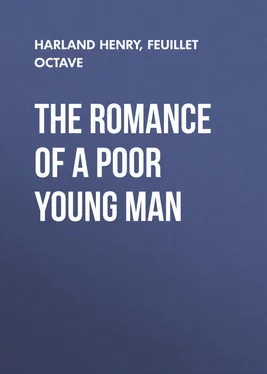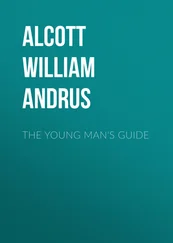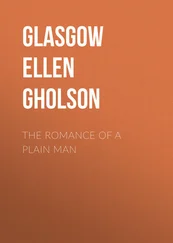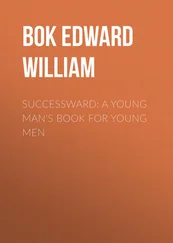Henry Harland - The Romance of a Poor Young Man
Здесь есть возможность читать онлайн «Henry Harland - The Romance of a Poor Young Man» — ознакомительный отрывок электронной книги совершенно бесплатно, а после прочтения отрывка купить полную версию. В некоторых случаях можно слушать аудио, скачать через торрент в формате fb2 и присутствует краткое содержание. Жанр: foreign_antique, foreign_prose, на английском языке. Описание произведения, (предисловие) а так же отзывы посетителей доступны на портале библиотеки ЛибКат.
- Название:The Romance of a Poor Young Man
- Автор:
- Жанр:
- Год:неизвестен
- ISBN:нет данных
- Рейтинг книги:5 / 5. Голосов: 1
-
Избранное:Добавить в избранное
- Отзывы:
-
Ваша оценка:
- 100
- 1
- 2
- 3
- 4
- 5
The Romance of a Poor Young Man: краткое содержание, описание и аннотация
Предлагаем к чтению аннотацию, описание, краткое содержание или предисловие (зависит от того, что написал сам автор книги «The Romance of a Poor Young Man»). Если вы не нашли необходимую информацию о книге — напишите в комментариях, мы постараемся отыскать её.
The Romance of a Poor Young Man — читать онлайн ознакомительный отрывок
Ниже представлен текст книги, разбитый по страницам. Система сохранения места последней прочитанной страницы, позволяет с удобством читать онлайн бесплатно книгу «The Romance of a Poor Young Man», без необходимости каждый раз заново искать на чём Вы остановились. Поставьте закладку, и сможете в любой момент перейти на страницу, на которой закончили чтение.
Интервал:
Закладка:
In September, 185-, there were some races near the château, and several of my father's horses were to run. We started early and lunched on the course. About the middle of the day, as I was riding by the course watching the fortunes of a race, one of our men came up and said he had been looking for me for more than half an hour. He added that my father had already been sent for and had gone back to my mother at the château, and that he wanted me to follow him at once.
"But what in Heaven's name is the matter?"
"I think madame is worse," said the servant.
I set off like a madman.
When I reached home my sister was playing on the lawn in the middle of the great, silent courtyard. As I dismounted, she ran up to embrace me, and said, with an air of importance and mystery that was almost joyful:
"The curé has come."
I did not, however, perceive any unusual animation in the house, nor any signs of disorder or alarm. I went rapidly up the staircase, and had passed through the boudoir which communicated with my mother's room, when the door opened softly, and my father appeared. I stopped in front of him; he was very pale, and his lips were trembling.
"Maxime," he said, without looking at me, "your mother is asking for you."
I wished to question him, but he checked me with a gesture, and walked hurriedly towards a window, as if to look out. I entered. My mother lay half-reclining in an easy-chair, one of her arms hanging limply over the side. Again I saw on her face, now as white as wax, the exquisite sweetness and delicate grace which lately had been driven away by suffering. Already the Angel of Eternal Rest was casting the shadow of his wing over that peaceful brow. I fell upon my knees; she half-opened her eyes, raised her drooping head with an effort, and enveloped me in a long, loving look. Then, in a voice which was scarcely more than a broken sigh, she slowly spoke these words:
"Poor child! … I am worn out, you see! Do not weep. You have deserted me a little lately, but I have been so trying. We shall meet again, Maxime, and we shall understand one another, my son. I can't say any more… Remind your father of his promise to me… And you, Maxime, be strong in the battle of life, and forgive the weak."
She seemed to be exhausted, and stopped for a moment. Then, raising a finger with difficulty, and looking at me fixedly, she said: "Your sister!"
Her livid eyelids closed; then suddenly she opened them, and threw out her arms with a rigid and sinister gesture. I uttered a cry; my father came quickly, and, with heartrending sobs, pressed the poor martyr's body to his bosom.
Some weeks later, at the formal request of my father, who said that he was obeying the last wishes of her whom we mourned, I left France, and began that wandering life which I have led nearly up to this day. During a year's absence my heart, becoming more affectionate as the selfish frenzy of youth burnt out, urged me to return and renew my life at its source, between my mother's tomb and my sister's cradle. But my father had fixed the duration of my travels, and he had not brought me up to treat his wishes lightly. He wrote to me affectionately, though briefly, showing no desire to hasten my return. So I was the more alarmed when I arrived at Marseilles, two months ago, and found several letters from him, all feverishly begging me to return at once.
It was on a sombre February evening, that I saw once more the massive walls of our ancient house standing out against the light veil of snow that lay upon the country. A sharp north wind blew in icy gusts; flakes of frozen sleet dropped like dead leaves from the trees of the avenue, and struck the wet soil with a faint and plaintive sound. As I entered the court a shadow, which I took to be my father's, fell upon a window of the large drawing-room on the ground floor – a room which had not been used during my mother's last days. I hurried on, and my father, seeing me, gave a hoarse cry, then opened his arms to me, and I felt his heart beating wildly against my own.
"Thou art frozen, my poor child," he said, much against his habit, for he seldom addressed me in the second person. "Warm thyself, warm thyself. This is a cold room, but I prefer it now; at least one can breathe here."
"Are you well, father?"
"Pretty well, as you see."
Leaving me by the fireplace, he resumed his walk across the vast salon , dimly lighted by two or three candles. I seemed to have interrupt this walk of his. This strange welcome alarmed me. I looked at my father in dull surprise.
"Have you seen my horses?" he said suddenly, without stopping.
"But, father – "
"Ah, yes, of course, you've only just come." After a silence he continued. "Maxime," he said, "I have something to tell you."
"I'm listening, father."
He did not seem to hear me, but walked about a little, and kept on repeating, "I have something to tell you, my son." At last he sighed deeply, passed his hand across his forehead, and sitting down suddenly, signed to me to take a seat opposite to him. Then, as if he wanted to speak and had not the courage to do so, his eyes rested on mine, and I read in them an expression of suffering, humility, and supplication that in a man so proud as my father touched me deeply. Whatever the faults he found it so hard to confess, I felt from the bottom of my heart that he was fully pardoned.
Suddenly his eyes, which had never left mine, were fixed in an astonished stare, vague and terrible. His hand stiffened on my arm; he raised himself in his chair, then drooped, and in an instant fell heavily on the floor. He was dead.
The heart does not reason or calculate. That is its glory. In a moment I had divined everything. One minute had been enough to show me all at once, and without a word of explanation – in a burst of irresistible light, the fatal truth which a thousand things daily repeated under my eyes had never made me suspect. Ruin was here, in this house, over my head. Yet I do not think that I should have mourned my father more sincerely or more bitterly if he had left me loaded with benefits. With my regret and my deep sorrow there was mingled a pity, strangely poignant in that it was the pity of a son for his father. That beseeching, humbled, hopeless look haunted me. Bitterly I regretted that I had not been able to speak a word of consolation to that heart before it broke! Wildly I called to him who could no longer hear me, "I forgive you, I forgive you." My God, what moments were these! As far as I have been able to guess, my mother, when she was dying, had made my father promise to sell the greater part of his property; to pay off the whole of the enormous debt he had incurred by spending every year a third more than his income, and to live solely and strictly on what he had left. My father had tried to keep to this engagement; he had sold the timber and part of the estate, but finding himself master of a considerable capital, he had applied only a small portion of it to the discharge of his debts, and had attempted to restore our fortunes by staking the remainder in the hateful chances of the Stock Exchange. He had thus completed his ruin. I have not yet sounded the depths of the abyss in which we are engulfed. A week after my father's death I was taken seriously ill, and after two months of suffering I was only just able to leave my ancient home on the day that a stranger took possession of it. Fortunately an old friend of my mother's, who lives at Paris, and who formerly acted as notary to our family, has come to my help. He has offered to undertake the work of liquidation which to my inexperienced judgment seemed beset with unconquerable difficulties. I left the whole business to him, and I presume that now his work is completed. I went to his house directly I arrived yesterday; he was in the country, and will not return till to-morrow.
Читать дальшеИнтервал:
Закладка:
Похожие книги на «The Romance of a Poor Young Man»
Представляем Вашему вниманию похожие книги на «The Romance of a Poor Young Man» списком для выбора. Мы отобрали схожую по названию и смыслу литературу в надежде предоставить читателям больше вариантов отыскать новые, интересные, ещё непрочитанные произведения.
Обсуждение, отзывы о книге «The Romance of a Poor Young Man» и просто собственные мнения читателей. Оставьте ваши комментарии, напишите, что Вы думаете о произведении, его смысле или главных героях. Укажите что конкретно понравилось, а что нет, и почему Вы так считаете.












